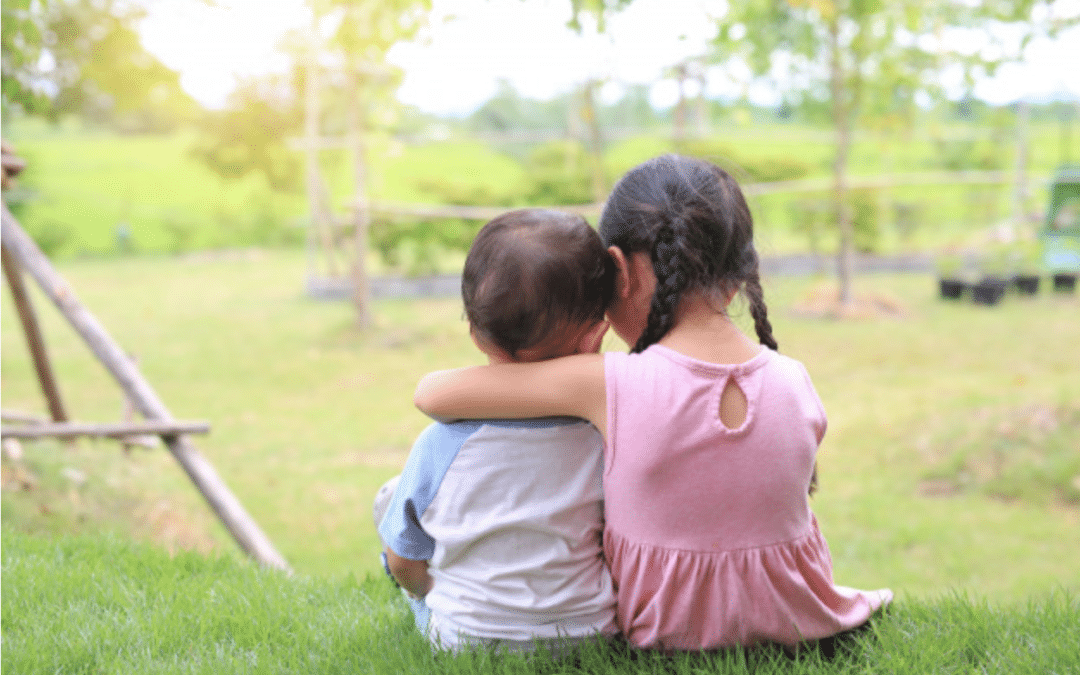Humans as a species are getting kinder and less violent. Although some of the events of recent years may make this seem unlikely the longer term statistics point to an overall reduction in violence. We are getting better at working together and developing a collective intelligence. Trade, travel and the internet have provided us with more opportunities than we have ever had before to work together.
Empathy is the ability to see and understand the world from another person’s perspective. When you have empathy, it allows you to experience the feeling of another person. It includes the ability to share with others, to be kind and to provide care for others when needed.
Relationship skills and empathy are becoming very important qualities that are carefully considered during job interviews and school entrance. You will notice social skills and classroom behaviour becoming a larger part of your children’s school report cards. Children who develop greater emotional intelligence skills will be more likely to not only get a job but also to advance in their chosen careers. Empathy or the understanding of the world from another’s perspective is a key management skill. As with other aspects of our personality empathy is the result of both nature and nurture. This means we can teach our children how to be more empathetic. Here are just a few ideas to help you build empathy in your children.
- Read books to your children. Lots of different books. Books provide an alternative perspective, and this helps increase empathy by exploring a literary landscape through the eyes of another.
- Talk your children through situations they might see or experience. Discuss how each different person involved in the situation might feel so they can see all the different perspectives.
- Discuss emotions that can impact empathy such as jealousy, revenge, rage. Talk about these at times they are calm. Get them to tell you what these emotions feel like in their bodies and how you can help when they feel like this.
- When someone is mean to your child, help them come up with as many different explanations for the other person’s behaviour as possible. What are all the possible reasons someone might be mean?
- If a family member is not being empathetic discuss this with them. For example, “Mummy is having a hard time being kind today because she is very tired, she is struggling to see that you are having a hard time getting your hair brushed”.
- Start teaching empathy from when they are little. Research has shown that by 6 months old babies display empathy for victims. Discuss with your child if they are not showing empathy to their siblings or to you as a parent. Help them start to see the world from the perspective of others i.e., “your brother is a lot littler than you and it makes him sad when you take his toys. When he cries, that is him telling you he is sad.” Babies are developing working models of relationships and these come from their primary caregivers and the experiences they have.
- If they have not been shown empathy from a sibling, family member, day care teacher or friend help them to communicate this to the other person. In some cases, you may need to do this for them to show them what to do and say. Often hugging a child who has hit a sibling is as important as hugging the child who has been hurt.
- Don’t allow tiredness, hungriness, etc be an excuse for not showing empathy. Let them know you understand it may be harder during these times, but you still expect them not to hit or hurt others. If they are finding it difficult to be kind they need to go into another area so they do not hurt others. Ask them what they need help with, in order to be kinder i.e., “do you need food, a cuddle or quiet time in order to be kind to your Grandpa?”
- Challenge your whole family as to who can be kindest for the day. Talk about kindness at the dinner table. Give praise to any kind behaviours you have seen during the day.
- Rather than giving your children a treat for being “good” give them a treat for being kind, gentle, or for helping others. Try to discuss the specific behaviour which was kind or gentle.
- Teach your children empathy for not only other humans but also for pets, your possessions, wild animals, and the environment i.e., we don’t chase the birds at the park as they are probably tired after flying all day.
Children are learning and they will test out different ways of interacting with others including being mean. It is important to help them to consider the different outcomes from their behaviour. Children will commonly have periods where they may not show empathy to siblings, classmates and particularly parents. You should seek further support from a psychologist or other health profession if your child shows an ongoing pattern of hurting others either physically or emotionally. If your child is struggling to show empathy it is important to consider the things that reduce empathy. These include:
- Seeing someone as different
- Wanting revenge
- Feeling someone has done something wrong
- Alcohol and drug use
- Jealousy
- Not being shown empathy by others
If you want to learn more about empathy here are some further resources. This a great video from Brené Brown that discusses the difference between empathy and sympathy.
This video shows an experiment where young children and chimpanzees demonstrate altruism which is similar to empathy.
This video is by Roman Krznaric an author who wrote Empathy: Why it matters and how to get it. He outlines six habits of highly empathetic people.
If you are finding your child’s behaviour difficult to manage seeing a Psychologist is a great way to learn some additional parenting skills and to better understand your own triggers and responses.


